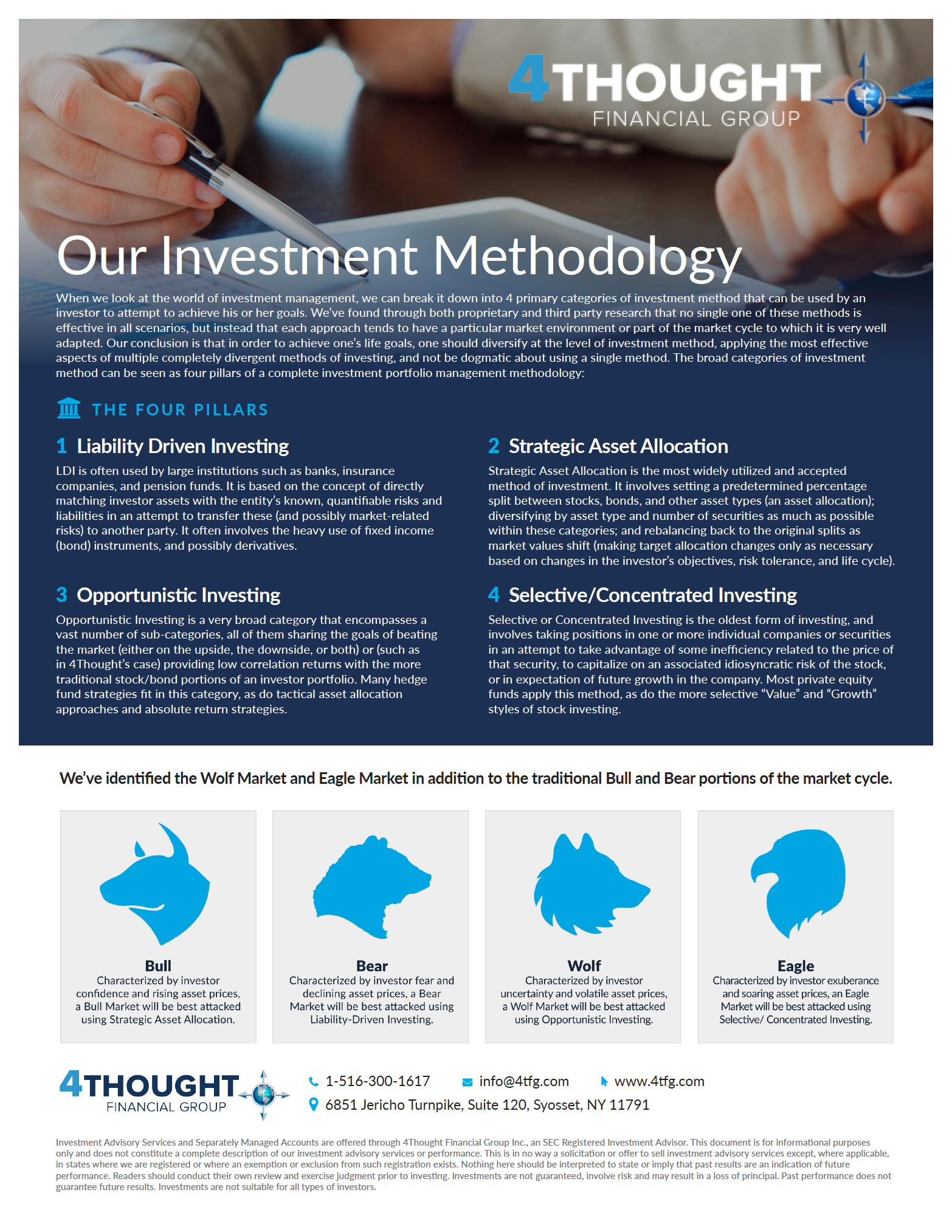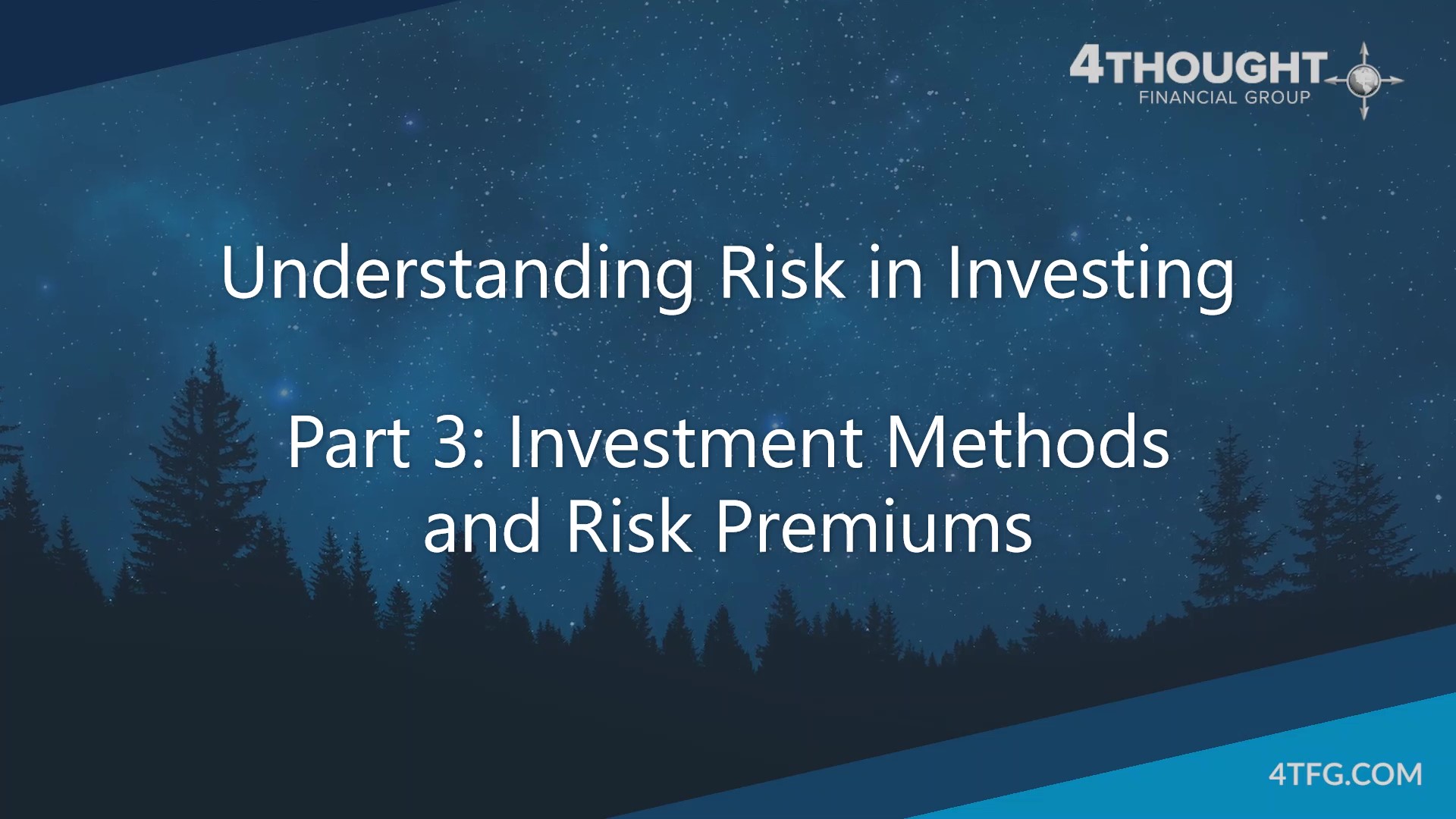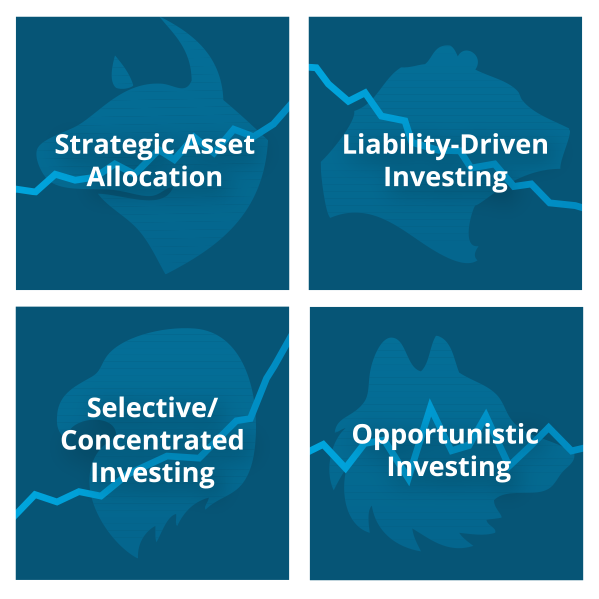

4Thought Financial Group's Unique Investment Methodology
"In order to achieve life goals, one should diversify at the level of investment method, applying the most effective aspects of multiple, completely divergent methods of investing, and not be dogmatic about using a single method"
Learn more about the 4Thought Financial Group Investment Methodology
Stocks, bonds, mutual funds -- these are all typical investments with which nearly everyone is familiar. However, there are other investments available for investors who are looking for something less conventional. These investments are usually illiquid, harder to value, and potentially quite a bit riskier than conventional stock/bond investment strategies and in most cases are only available to “accredited” investors. But alternative investing may be a sound strategy for savvy investors who have the right professional guidance. Here's an overview of a few different alternative investment strategies.
Private Equity
While stocks are investments in publicly traded companies, there are also private companies who are looking for investors. One way you can find these opportunities is through a private equity firm or fund.
Direct Investing
If you don't like the idea of a private equity fund, you can also choose to invest directly in a private company. With this higher-risk strategy, you'll have to do the legwork on your own, but you may pay less for the opportunity.
Venture Capital
Venture capital investments are typically very high-risk, but when they do well, they tend to have high returns. These investments focus on early startups that operate with little more than a business plan. They typically have little to no revenue history, and they're looking for investors to help them grow. Proceed with caution, though. As the Harvard Business Review states, "[M]any more venture-backed start-ups fail than succeed."
Real Assets
These investments are called "real" because they're tangible assets. Everything from real estate to rare coins fall within this definition. As long as it's tangible and has value, it's a real asset. Because of the wide variety of real assets available, your options with this strategy are seemingly endless. Many investors choose a real asset that has meaning to them, either as a hobby collection or because of some personal connection. You can find these assets through a multitude of means, including auctions, direct purchases and investment firms.
Hedge Funds
Hedge fund managers offer a variety of investment types depending on the strategy used. These alternative investments are different from private equity and venture capital because they focus on publicly listed securities, and often use a somewhat unconventional approach to management, which may differentiate them from conventional stock/bond investments. Hedge funds are usually structured as an interest in a limited partnership, which generally makes them much less liquid than publicly listed securities purchased alone, but they are still usually somewhat more liquid than private equity, so you can cash out slightly more easily. Typical hedge fund strategies include equity long-short, distressed assets, arbitrage and macro-trends, amongst many others.
Fund of Funds
If you can't choose from these alternative investment strategies, a fund of funds may be the answer for you. These are large funds that invest in a portfolio of diversified alternative investments, possibly including a variety of some of the options already mentioned.
Private Placement Debt
Debt investments are one of the larger alternative investment types. You can invest in private placement bonds, which aren't available publicly. These are loans usually used to finance a private company. You may receive steady cash flow as a result, though you should note that these investments aren't required to have a credit rating by any reputable agency, and they may be subject to substantial risk of default.
Final Thoughts
If you’re interested in exploring options outside of conventional stock/bond investments and long for a different strategy that doesn't necessarily rely directly on market performance, alternative investments could be a great solution. Alternative investment options are practically endless, so you'll want to enlist the help of financial professionals to help you select and gain access to the most appropriate options. Given the wide range of options available in the space, they're worth a second -- or third -- look from any savvy investor who's looking for something new to add to the portfolio.






Leave a Comment